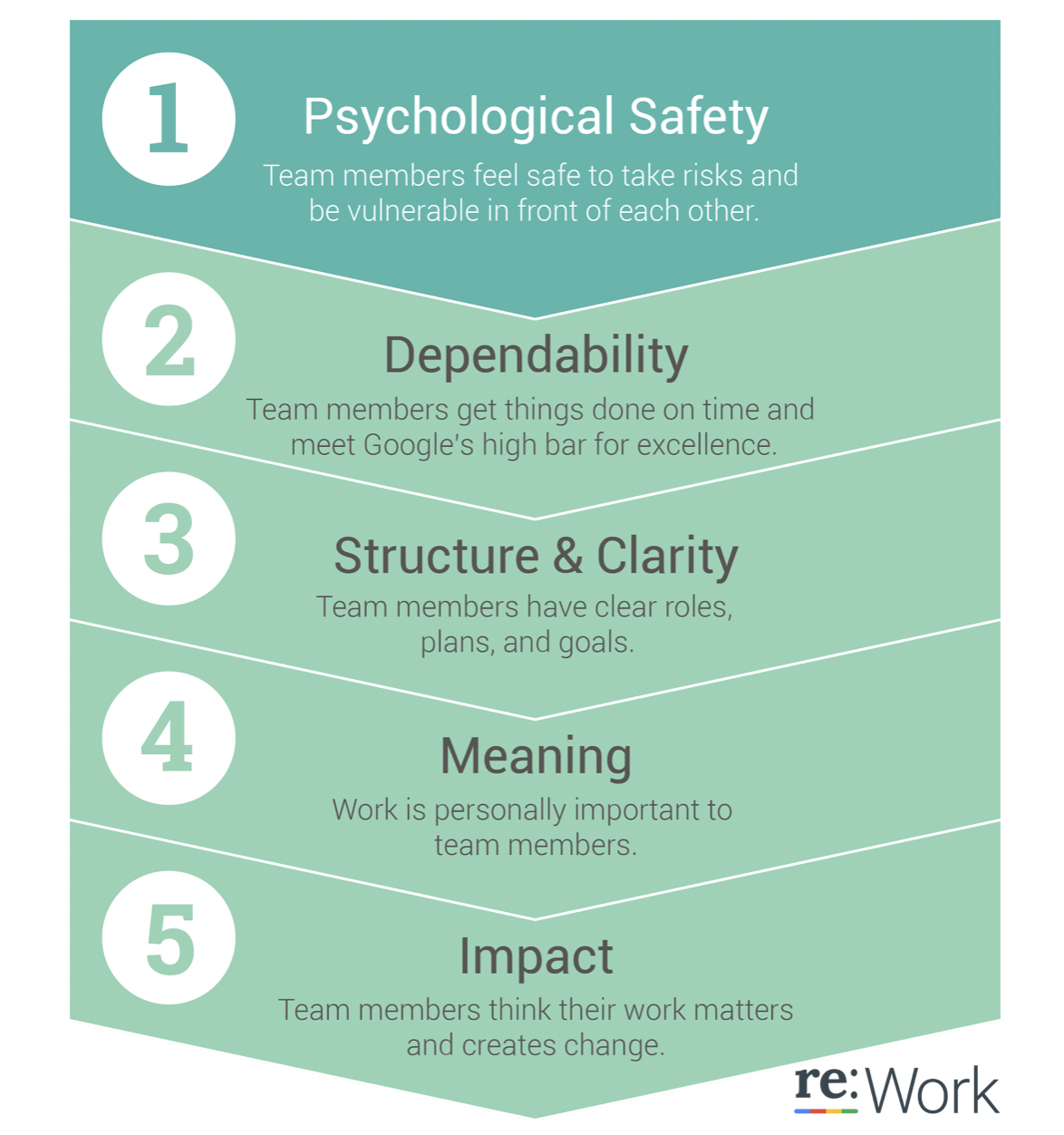What makes one team function more effectively than another?
There is no denying that an organisation’s leadership has have a direct impact on the functioning and capacity of a team. But is that the only determining factor? I have personally experienced working in a team that was high functioning and thriving despite poor senior leadership. How was that possible?
Google’s Project Aristotle set out to uncover exactly that. What makes an effective team? They had long assumed the most effective teams were made up of the most talented and intelligent employees. But, after a mix of qualitative and quantitative approaches they couldn’t make sense of why, when they looked at different teams all filled with the best and brightest, some teams showed high productivity and thriving cultures, while others didn’t.
After revising their approach, Google’s project discovered the most effective teams weren’t dependant on the level of the teams skills, experience or how technologically advanced the systems and processes. Instead it was the intangible ‘group norms’ that had the greatest impact on how a team performed. The ‘group norms’ are the traditions, behavioural standards, and unwritten rules, that perpetuate how teams function. They found these unspoken rules of behaviour either enhanced a team’s capability or restrained and undermined it. The project went onto define the five characteristics of an effective team.
5 characteristics of an effective team
Psychological safety
As a foundation of the individual team or the organisation’s culture, building an environment where employees feel free to contribute and challenge without fear of retribution or threat.
Dependability
Dependability is essentially how well team members can rely on each other to get things done. This includes responding to communication, consistency and delivering to an accepted standard.
Structure and clarity
Every team member clearly understands the structure of the organisation including clarity of their role and what is expected of them to perform their job.
Meaning
Meaning can be different for everyone, and each team member needs to be free to embrace their own reasons why they turn up to work everyday.
Impact
Understanding the bigger picture, how a team members work contributes to the broader goals and that it is valued is motivating as well as remaining focused on the shared objective.

When teams are dysfunctional it is easy to focus on personalities or skill capability, which can quickly undermine and individual’s confidence and engagement. Another misguided approach can be to organise social events in an event to bring the team closer together. If the team don’t enjoy working together, they’ll enjoy socialising even less.
If teams in your organisation are not working as effectively as they could, before jumping to reactive solutions or investing in expensive systems and solutions, start with understanding the teams unspoken ways of working. What are the embedded ‘ground rules’ that determine their capability?

